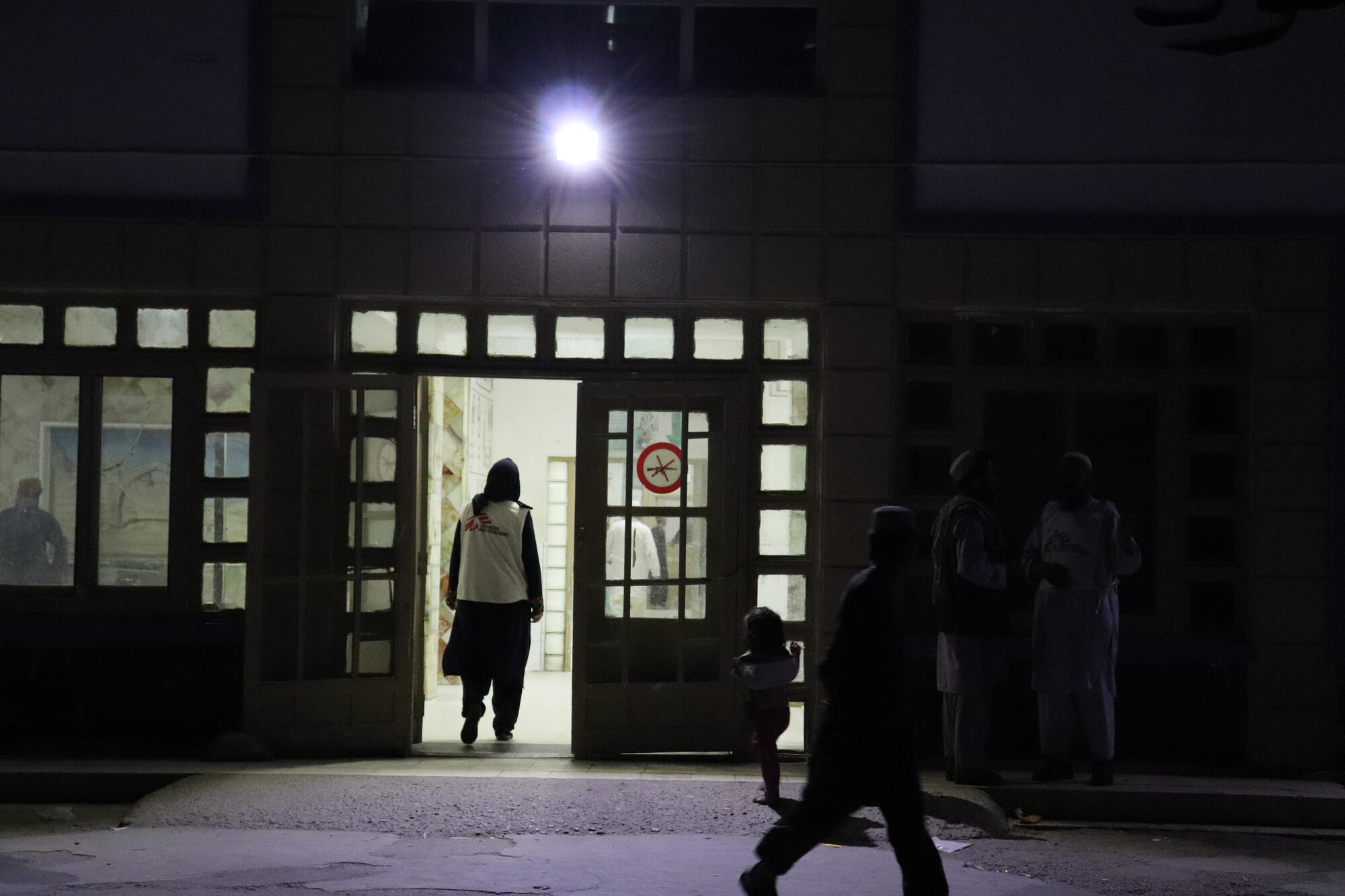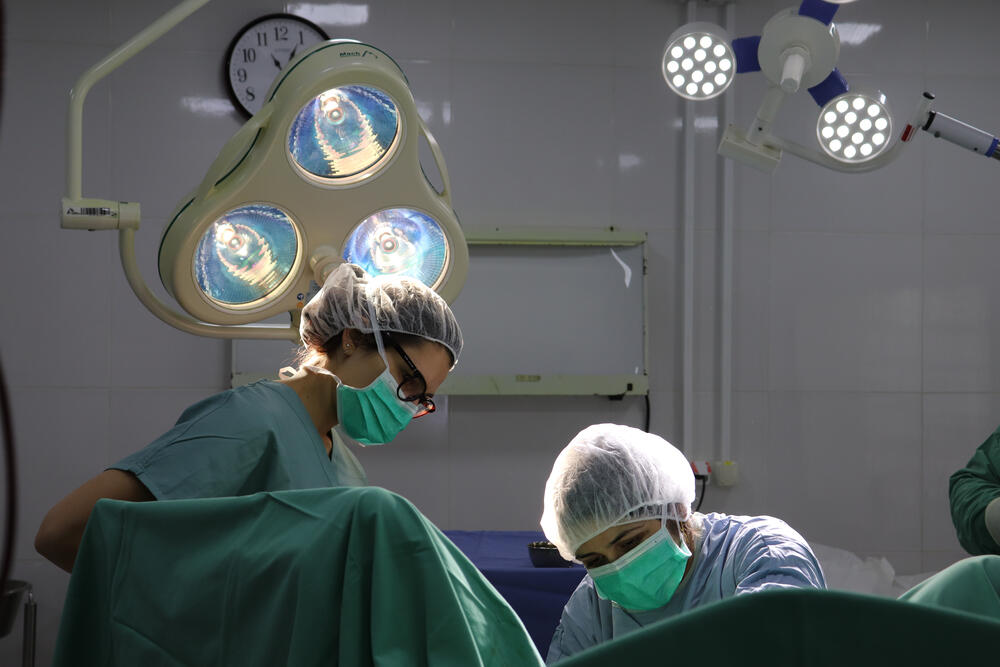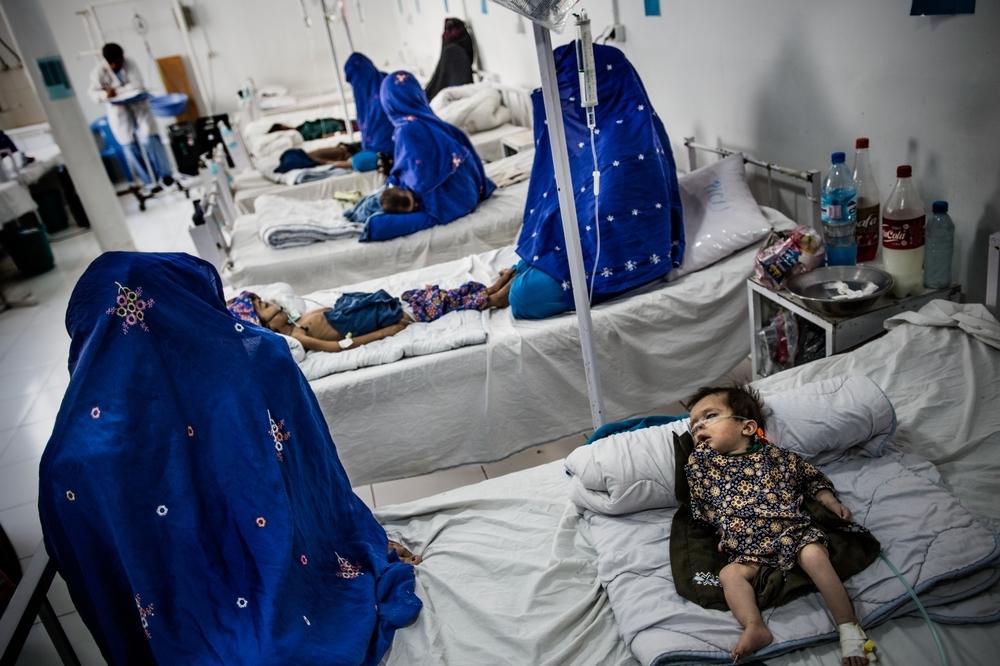Afghanistan: “There was still a chance to save her..."
When an emergency case arrives at a hospital in the city of Lashkar Gah, the team must race to save a life. Dr Ajmal shares the story.

They had travelled 100 km to reach our hospital. The woman had been hit in the abdomen by a stray bullet. She was pregnant. By the time they arrived, she was in a critical condition.
My name is Dr Ajmal*, I work for Médecins Sans Frontières / Doctors Without Borders (MSF) in Afghanistan.
Access to medical care is always vital. It was vital throughout the many years of fighting in Afghanistan and it’s just as vital today.
When the woman and her family arrived last year, they were met by the female guard. The guard recognised the severity of the situation and helped them into the emergency room (ER), alerting the other staff.
The ER team raced to help the woman. Quickly they assessed her, inserted an IV line, and called the obstetrician. It was an emergency, and they worked fast.
Very sadly, an ultrasound showed that the bullet had hit the woman’s baby, and the baby had died. But there was still a chance to save the mother.
Life-saving surgery
The surgery team prepared the operating theatre. We are lucky to have two operating theatres in our hospital, and one is reserved for obstetric cases, so she was rushed in.
Our service specialises in providing care for women with childbirth complications and the team is extremely experienced in emergency caesareans like this one.
The woman lived in a distant village and had lost a lot of blood on the long drive, but the anaesthetist, obstetrician and nurses worked together to perform the operation and stop the bleeding.
Our hospital has a blood bank which meant the woman got the transfusion she needed during the surgery.
Recovery
She survived the operation and was transferred to the ward, where she needed a further blood transfusion, antibiotics and more IV fluids.
On the ward the nurses and midwives cared for her, changing her dressings and making sure she was eating the special post-operative diet we give our patients to help them recover.
The woman gradually improved, until, just five days after she’d arrived, she was stable enough to travel again. The fighting was ongoing and she was anxious to be back with her other children.
"Many other health facilities have no medical supplies, no funding for basic running costs, and no money to pay their staff. They have stopped functioning..."
When it was time for her to leave the hospital, she kissed the hands of one of our midwives and thanked the whole team who had saved her life.
Whenever I think of this lady’s story I feel really proud of my team. From the moment she arrived they did a great job – the qualifications and experience levels of our staff here are amazing.
But I also felt proud of the whole service MSF provides. If MSF wasn’t here,
Medical crisis
The situation in Afghanistan has changed a lot since we said goodbye to that lady.
Governments and donors have enacted financial measures against Afghanistan. This has led to an economic crisis and a shortage of cash, leaving many employers, including those providing healthcare, unable to pay staff salaries.
People are losing their jobs, and prices at the markets are rising sharply. Many families struggle to afford food. Across the country, the healthcare system has collapsed.
At the same time, foreign aid on which the Afghan health system was dependent has largely been suspended. Many other health facilities have no medical supplies, no funding for basic running costs, and no money to pay their staff. They have stopped functioning.
that poor lady would have lost her life.
Here in Lashkar Gah, Boost hospital is the only public medical facility that is fully operational.
Our activities are funded directly by private donations, which is how we have been able to prioritise staff wages and maintain our supply chains. As a result, the number of admissions has significantly increased.
Our teams are now helping around 1,900 women give birth every month. Around 10 percent of those births are emergency caesarean sections – situations where the patient’s life is at risk.
The needs here have increased tremendously, and with more patients, we're using more supplies and more medication, as well as needing more staff.
"Many of our patients have to sell their possessions just to pay for a car ride to a working hospital. For some people, we are their only hope for medical care..."
The impact
Patients arriving at Boost find a very large and busy hospital. The maternity department is a women-only space, staffed by highly motivated, expert female staff.
It’s crowded, but we’re very well organised. There are women walking the corridors waiting for their labour pains to come, and others being helped to the delivery room, recovering from surgery, or sitting up, feeding their new babies.
The care we gave the woman who was shot would have cost around 20,000 Afghanis (~£160) in a private hospital here.
But many of our patients have to sell their possessions just to pay for a car ride to a working facility. For some people, we are their only hope for medical care.
Our teams here are doing an enormous job, and that job would not be possible without the support of MSF’s donors.
When someone donates and that donation funds our medical supplies, or helps to pay our staff, I feel the outcome of it. I feel it, as an Afghan doctor working at this time when there is so little functioning healthcare here.
*Name has been changed

